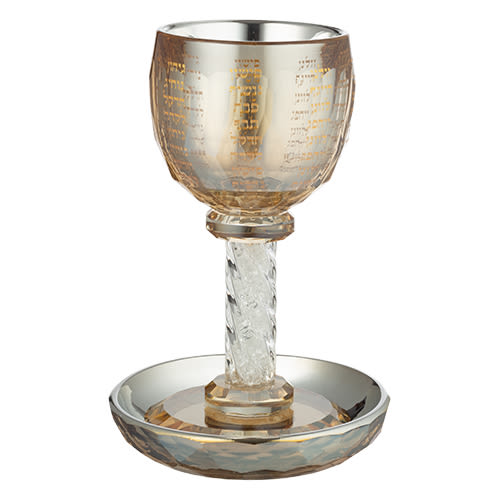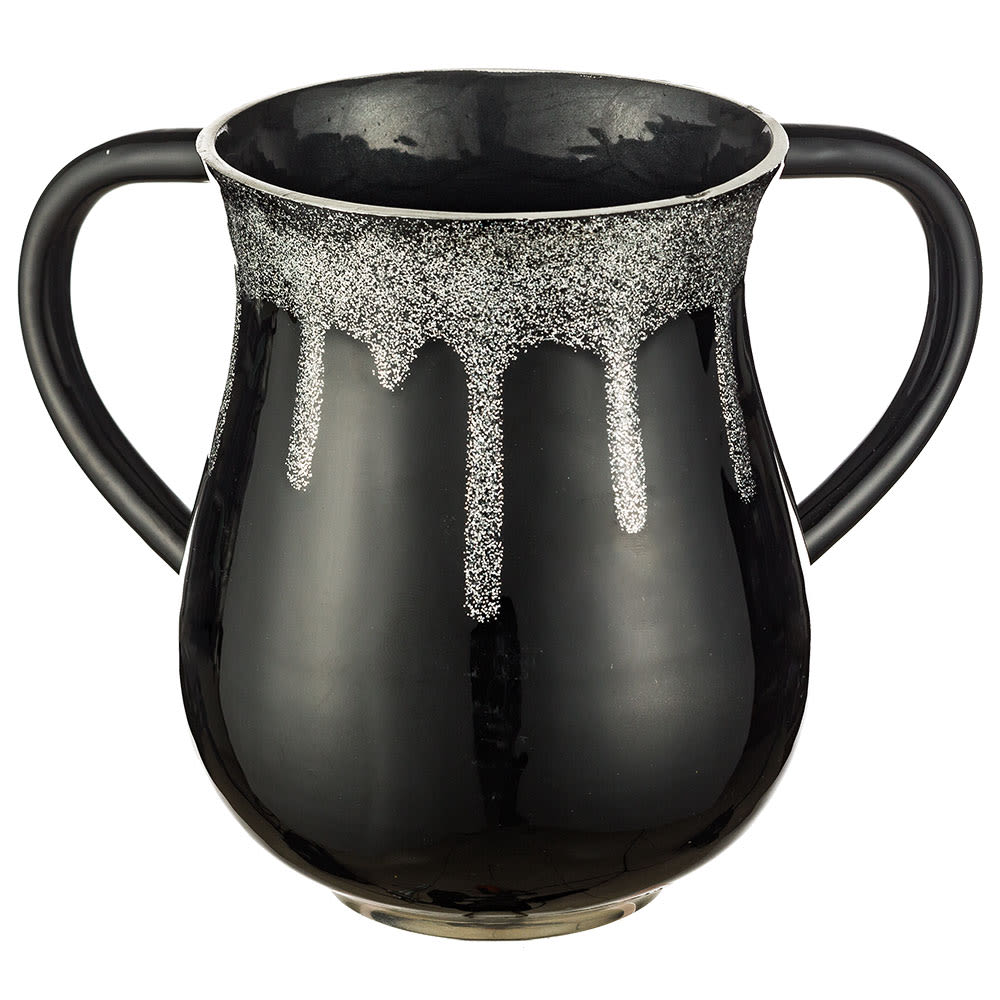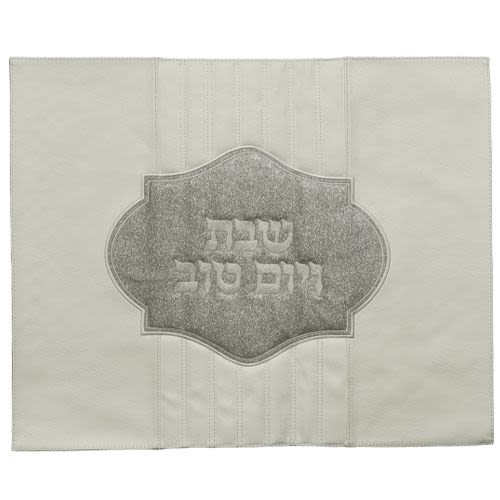
Behaalotcha: Simplicity and Perseverance
Commenting on the above passage, Rashi writes that Aharon (Aharon) was upset when he saw the twelve days of festivities during the inauguration of the Holy..

"When you kindle the lamps…" (Bamidbar 8:2).
Commenting on the above passage, Rashi writes that Aharon (Aharon) was upset when he saw the twelve days of festivities during the inauguration of the Holy Tabernacle, when each of the twelve tribes had its day of glory, presenting its gift offerings before Hashem. Aharon and the priestly tribe sat on the sidelines, with no glorious day of their own. Hashem consoled Aharon, and said, "For the life of you, Aharon, your share is greater than theirs, for you shall light the lamps!"
Hashem's consolation of Aharon is apparently puzzling: For twelve straight days, each respective tribal president was the focus of millions of eyes, when all of Israel – 603,550 men alone, and with women and children, millions – gathered around the Holy Tabernacle for the glory, pomp, and splendor of the tribal president's lavish offerings on the alter. The day of offering was also a holiday for each respective tribe when its turn came. Millions of people cheering, praising Hashem's name, rejoicing – who can imagine such a magnificent spectacle? Each respective tribe with their president in the lead brought their gifts of silver and gold utensils, ascent offerings, sin offerings, and peace offerings to Hashem. For twelve whole days, the twelve tribes bask in the limelight while Aharon and his tribe sit quietly in the corner.
When the festivities are over, and everyone returns to their tents, Hashem comes to Aharon and grants him a mitzvah – far removed from the eyes of a single onlooker, much less the millions of Israel – alone, quietly, with no publicity, no neon signs, no glitter, no pomp, no glory, no banner headlines, and no flashing lights. Hashem gives Aharon the high priest the task of kindling the Menorah.
How can one even compare Aharon's simple, modest, seemingly insignificant task of lighting the Menorah to the grandeur of a tribal president's opulent presentation of his offerings on the altar, in full public view?
If I'm not mistaken, the answer is quite simple: The tribal president's day of glory was a once-in-a-lifetime occurrence. On the other hand, Aharon's task was daily. He and his offspring would be lighting the Menorah every single day, until the end of time, may our holy temple be rebuilt soon!
Hashem tells Aharon, "Your share is greater than theirs!" We therefore learn – directly from Hashem – that an apparently unassuming mitzvah that's performed on a daily basis is much greater than a mitzvah of gigantic proportions that's done once in a lifetime, as we see in the following parable:
Doctor Grossfarb aggravated the rabbi and the residents of Ivanov. They warned him a thousand times, yet he'd never listen. What's more, the Berlin-educated physician with the gold-rimmed spectacles enjoyed the protection of the Graf and the bishop, who were more than happy that the "enlightened" Jew – who was fluent in German, Russian and Polish, yet barely spoke the Yiddish jargon of his brethren – kept his clinic open on Shabbos. On the holy seventh day, the insolent doctor always had a room full of eager Ukrainian patients, including the Graf himself, the most powerful person in all of the central Ukraine.
Berel was a complete contrast to Grossfarb. He spoke Yiddish only, with a few phrases in Russian. He had long reddish-brown sidecurls and a beard that reached the fourth button of his coarse-woolen shirt. Berel was a "balagoula", a wagon driver. Whenever he wasn't transporting people or cargo, he could be found in the local house of study. He didn't know much about learning Talmud, but he could understand Mishnayos with the Bartenura commentary, and he loved to recite Psalms. Berel finished the entire Book of Psalms every single day for forty years, and was still going strong when…
The Cossack revolutionaries invaded the Ukraine, wreaking havoc and spilling Jewish blood wherever they went. They reached Ivanov on a Saturday morning, when everything was closed except for Doctor Grossfarb's clinic. Brutally, they dragged the doctor out in the middle of the street. The vicious anti-Semites then unrolled a Sefer Torah that they had pillaged from a local shul, and unraveled it in the street.
The blood-thirsty Cossacks ordered Grossfarb to dance on the Torah scroll, ands trample it. He refused. "What do you care?" sneered the band leader. "You don't observe what's written in that scroll. Dance on it!"
Again, Grossfarb refused. To the horrified eyes that peeked out of hiding places all around town, Grossfarb died a heroic but horrible martyr's death at the hands of Esau's grandsons. He died a Jew, despite his life of agnosticism.
Amazingly, the lone murder satisfied the Cossacks' lust for blood and left the town. When the Sabbath was over, the rabbi of Ivanov gathered a minyan, and together with the doctor's family, laid the martyr in eternal rest.
Three weeks later, the murderous Cossacks seized Berel the Balagoula, on an empty road halfway between Ivanov and Medziboz. Berel too died a martyr's death.
For Berel's funeral, the rabbi declared a moratorium on the town, ordering everyone to close their shops and attend the funeral. Ivanov's Torah scholars eulogized Berel for three solid hours. When the funeral was over, Grossfarb's sons were fuming: "Rabbi, how dare you grant such honor to a crass mule master when our distinguished father was buried with a simple minyan and no eulogies? He died a heroic martyr's death in public – a sanctification of Hashem's name – the greatest of mitzvas!"
"You are correct," said the rabbi patiently, but firmly. "Nevertheless, this was your father's only mitzvah. He broke the other laws of Torah all his life. Yet, the simple Berel served Hashem with perseverance, illuminating the heavens with his thousands of Psalms. He is the greater hero!"
Rebbe Nachman of Breslev teaches (Likutei Moharan II:104) that Hashem derives untold gratification from the ongoing "avodat Hashem", or divine service, of a simple Jew.
A housewife's daily Psalms, said year in and year out, carry more weight in Heaven than a rich man's once-in-a-lifetime donation of a million dollars. With this in mind, Hashem's message to Aharon, that the quiet, daily service in the tabernacle is loftier than the one-time mitzvah of the tribal presidents, no matter how magnificent. Rebbe Nachman explains that Hashem loves the beauty, simplicity, and innocence of Psalms, singing at the Shabbos table, and the sincere recitation of prayer. May we all serve Hashem with simplicity, perseverance, and innocence, amen.












Tell us what you think!
Thank you for your comment!
It will be published after approval by the Editor.